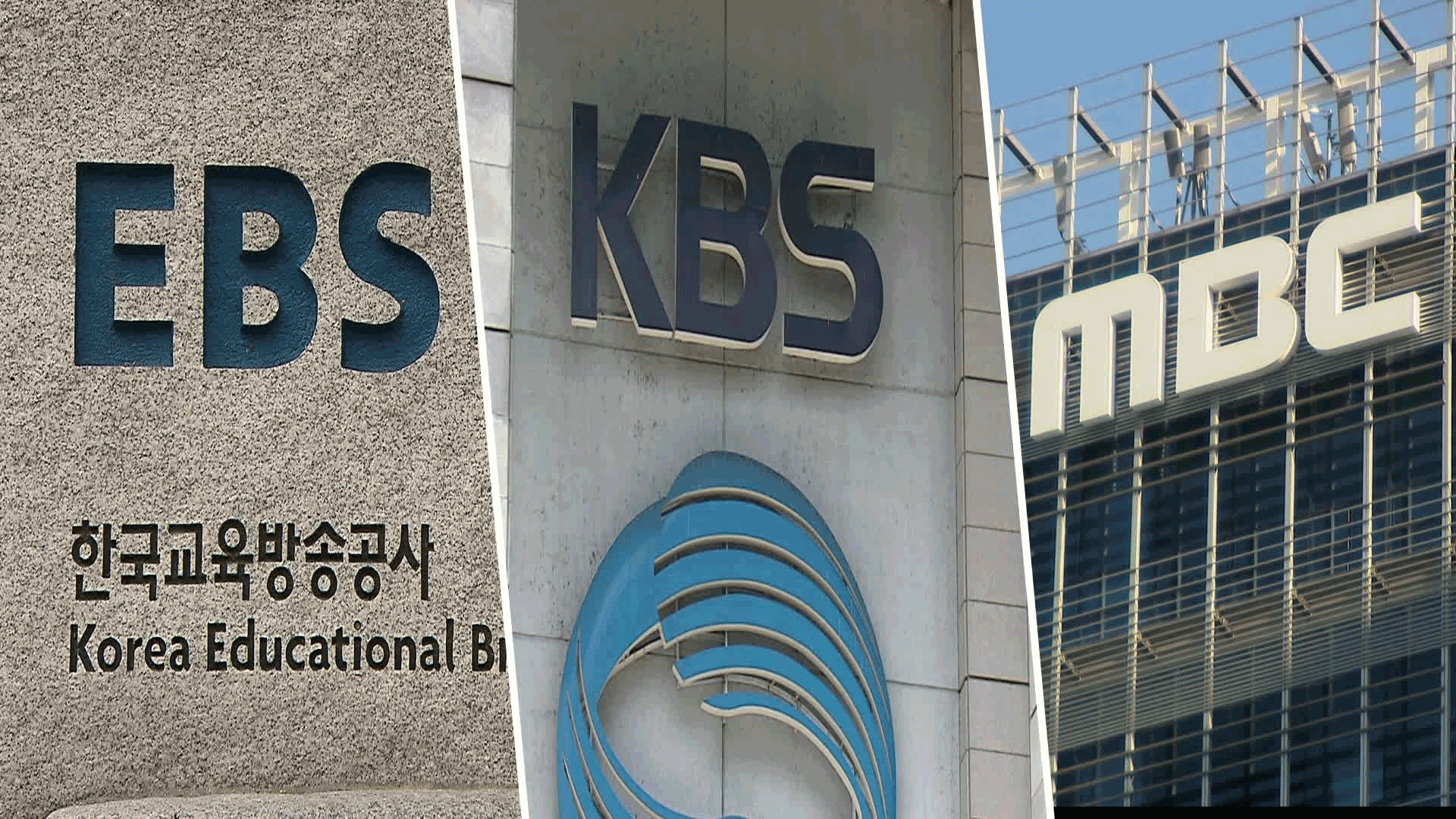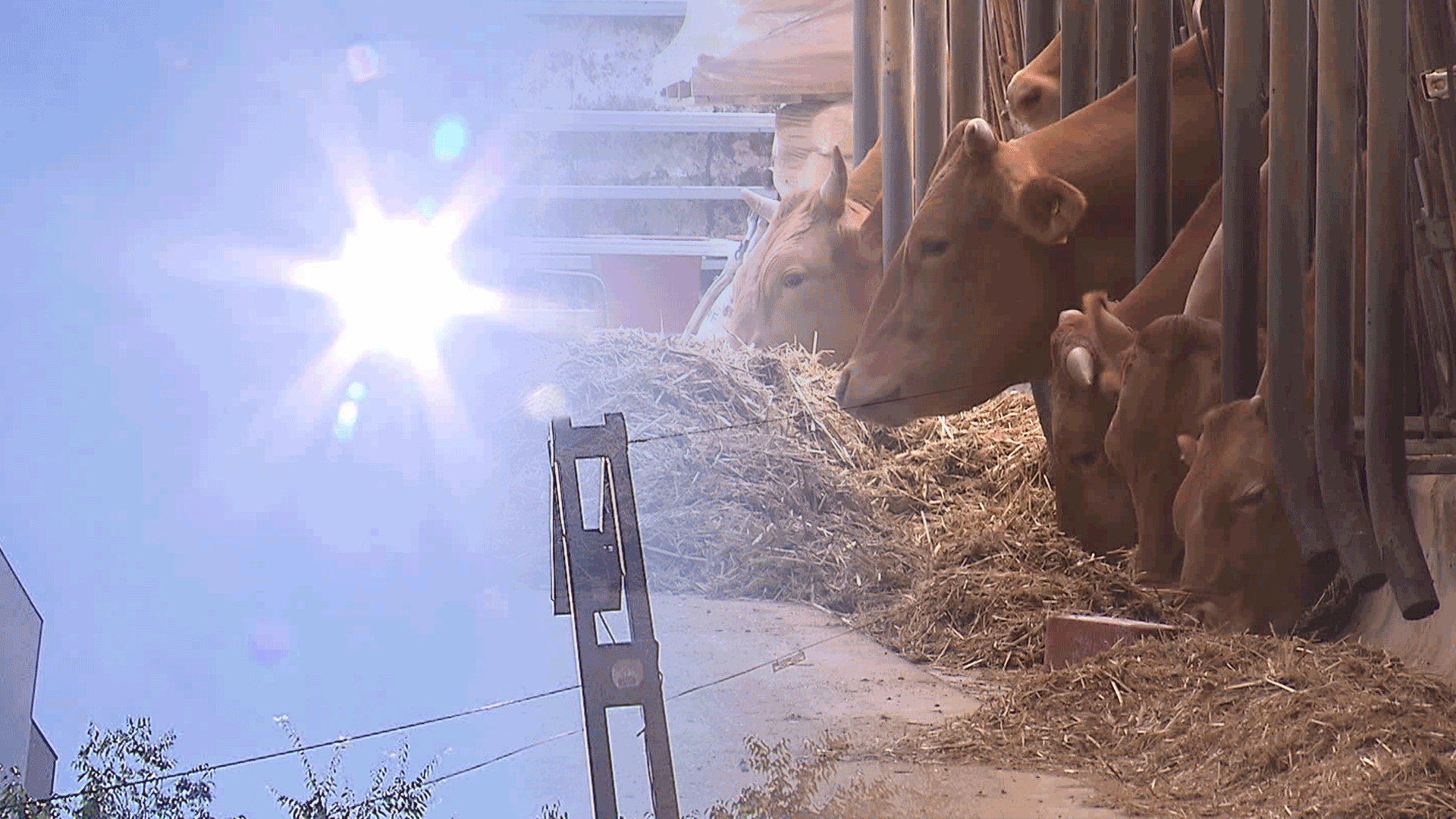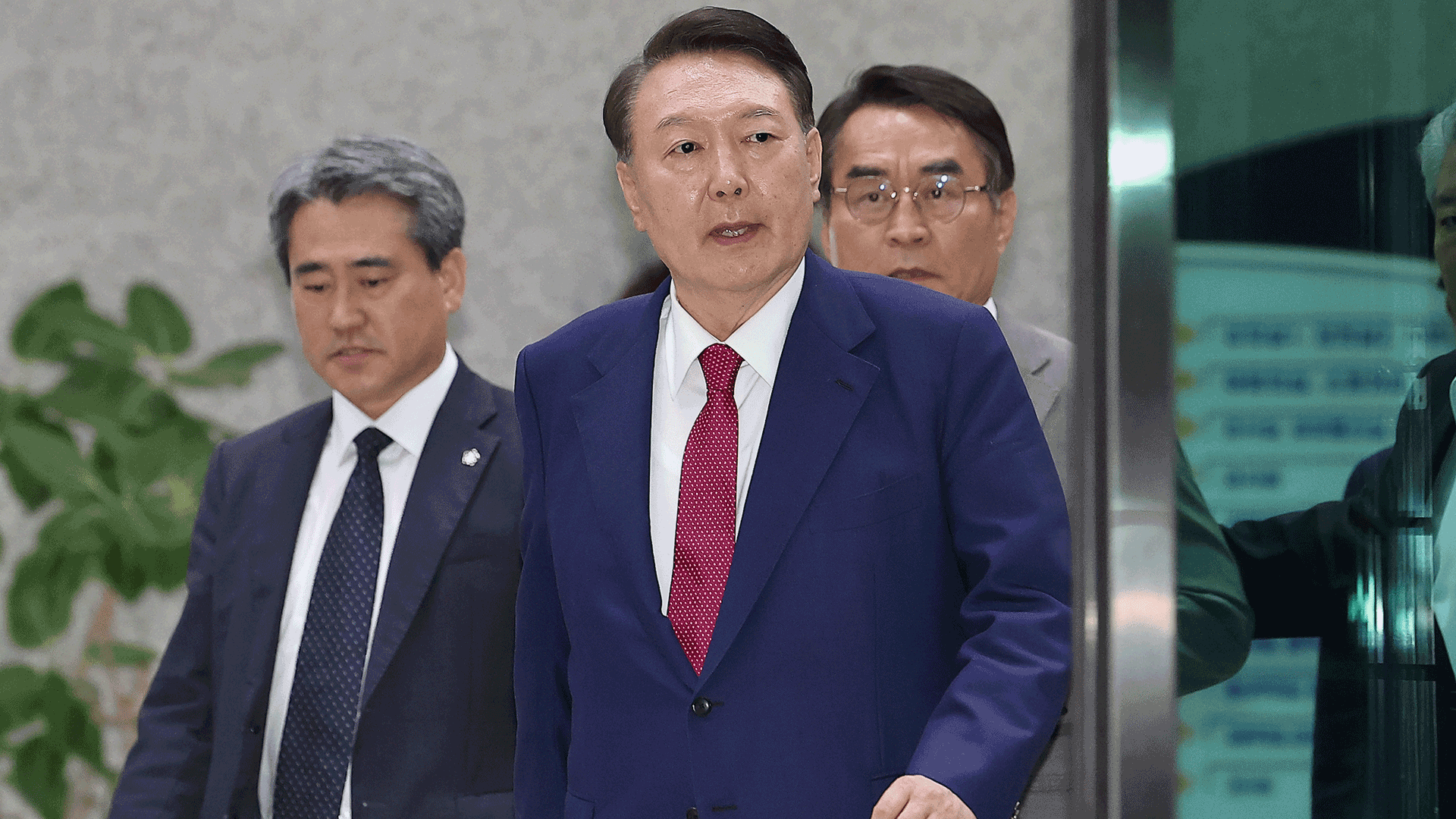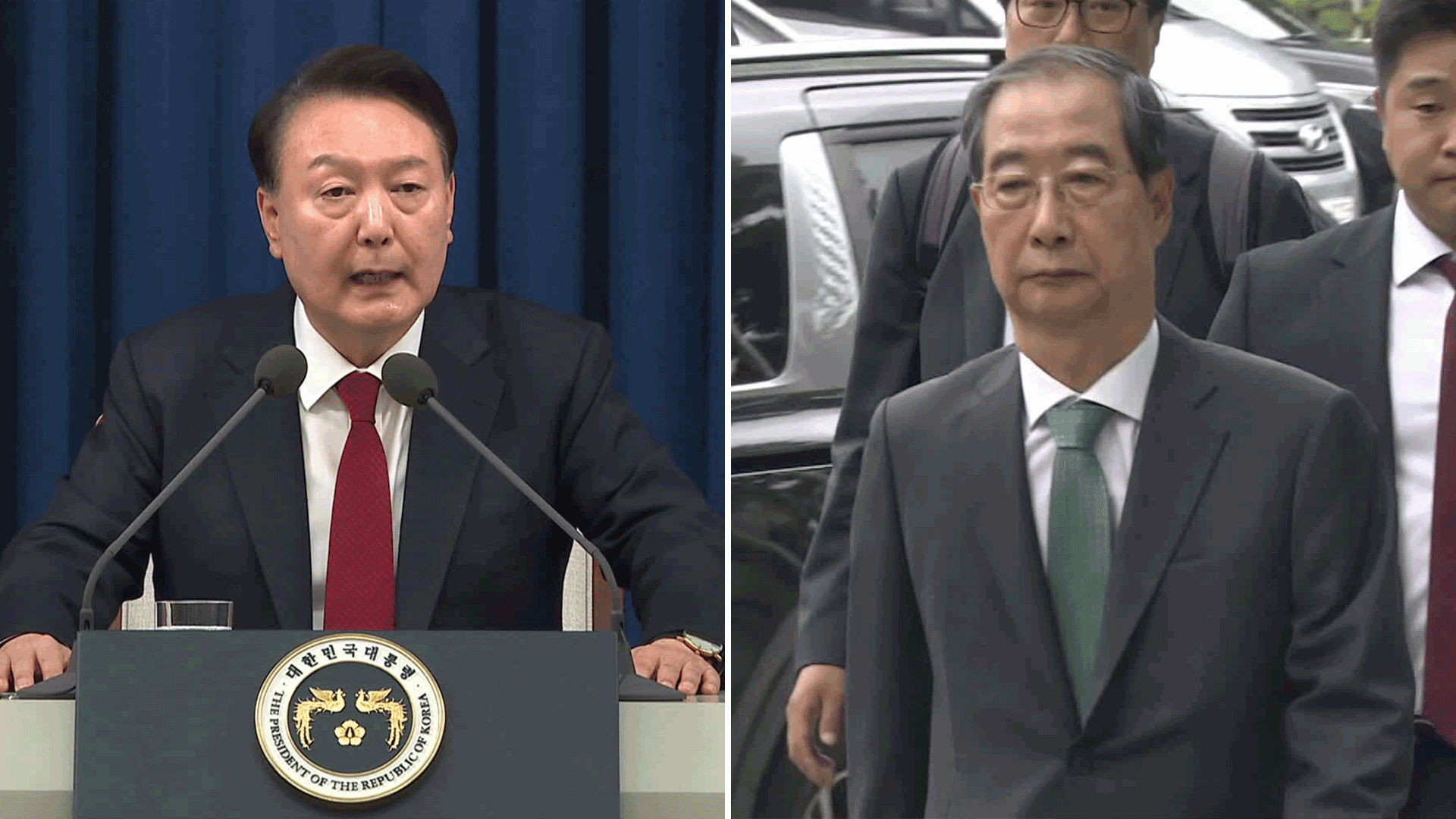Key features of broadcasting reform
입력 2025.07.08 (00:24)
읽어주기 기능은 크롬기반의
브라우저에서만 사용하실 수 있습니다.
[Anchor]
The broadcasting reform bills you just saw include provisions to expand the boards of public broadcasters and to distribute board member nomination rights to civil society and other entities.
Reporter Woo Jung-hwa explains the main elements of the three broadcasting laws and the concerns surrounding them.
[Report]
The laws that serve as the foundation for the operation of public broadcasters like KBS, MBC, and EBS are collectively referred to as the 'three broadcasting laws.'
The key feature of the proposed amendments is a change in the composition of public broadcasters’ boards of directors.
Under the amendment, the number of board members will increase to 15 for KBS and 13 each for MBC and EBS.
The method of nominating board members will also be revised to reduce political influence.
Director nomination rights, which were previously informally divided between the ruling and opposition parties, will now be legally capped at 40%.
The remaining nomination rights will be allocated to viewer committees, broadcasting professionals, and related academic societies.
The logic is that a more diverse board composition will strengthen political independence and ensure the autonomy and fairness of public broadcasting.
However, there are concerns that distributing nomination rights in this way could still favor certain factions.
There are questions about whether transparency and objectivity can be guaranteed in a board structure that has the authority to create a recommendation committee for its president.
Once established, the recommendation committee would be nearly impossible to dismantle, which could lead to a fixed power structure.
The amendment also includes introducing a consent system for appointing news directors and mandating the establishment of programming committees.
However, there are criticisms that it fails to address regional representation, which is considered a key pillar for the existence of public broadcasting.
This is KBS News, Woo Jung-hwa.
The broadcasting reform bills you just saw include provisions to expand the boards of public broadcasters and to distribute board member nomination rights to civil society and other entities.
Reporter Woo Jung-hwa explains the main elements of the three broadcasting laws and the concerns surrounding them.
[Report]
The laws that serve as the foundation for the operation of public broadcasters like KBS, MBC, and EBS are collectively referred to as the 'three broadcasting laws.'
The key feature of the proposed amendments is a change in the composition of public broadcasters’ boards of directors.
Under the amendment, the number of board members will increase to 15 for KBS and 13 each for MBC and EBS.
The method of nominating board members will also be revised to reduce political influence.
Director nomination rights, which were previously informally divided between the ruling and opposition parties, will now be legally capped at 40%.
The remaining nomination rights will be allocated to viewer committees, broadcasting professionals, and related academic societies.
The logic is that a more diverse board composition will strengthen political independence and ensure the autonomy and fairness of public broadcasting.
However, there are concerns that distributing nomination rights in this way could still favor certain factions.
There are questions about whether transparency and objectivity can be guaranteed in a board structure that has the authority to create a recommendation committee for its president.
Once established, the recommendation committee would be nearly impossible to dismantle, which could lead to a fixed power structure.
The amendment also includes introducing a consent system for appointing news directors and mandating the establishment of programming committees.
However, there are criticisms that it fails to address regional representation, which is considered a key pillar for the existence of public broadcasting.
This is KBS News, Woo Jung-hwa.
■ 제보하기
▷ 카카오톡 : 'KBS제보' 검색, 채널 추가
▷ 전화 : 02-781-1234, 4444
▷ 이메일 : kbs1234@kbs.co.kr
▷ 유튜브, 네이버, 카카오에서도 KBS뉴스를 구독해주세요!
- Key features of broadcasting reform
-
- 입력 2025-07-08 00:24:35

[Anchor]
The broadcasting reform bills you just saw include provisions to expand the boards of public broadcasters and to distribute board member nomination rights to civil society and other entities.
Reporter Woo Jung-hwa explains the main elements of the three broadcasting laws and the concerns surrounding them.
[Report]
The laws that serve as the foundation for the operation of public broadcasters like KBS, MBC, and EBS are collectively referred to as the 'three broadcasting laws.'
The key feature of the proposed amendments is a change in the composition of public broadcasters’ boards of directors.
Under the amendment, the number of board members will increase to 15 for KBS and 13 each for MBC and EBS.
The method of nominating board members will also be revised to reduce political influence.
Director nomination rights, which were previously informally divided between the ruling and opposition parties, will now be legally capped at 40%.
The remaining nomination rights will be allocated to viewer committees, broadcasting professionals, and related academic societies.
The logic is that a more diverse board composition will strengthen political independence and ensure the autonomy and fairness of public broadcasting.
However, there are concerns that distributing nomination rights in this way could still favor certain factions.
There are questions about whether transparency and objectivity can be guaranteed in a board structure that has the authority to create a recommendation committee for its president.
Once established, the recommendation committee would be nearly impossible to dismantle, which could lead to a fixed power structure.
The amendment also includes introducing a consent system for appointing news directors and mandating the establishment of programming committees.
However, there are criticisms that it fails to address regional representation, which is considered a key pillar for the existence of public broadcasting.
This is KBS News, Woo Jung-hwa.
The broadcasting reform bills you just saw include provisions to expand the boards of public broadcasters and to distribute board member nomination rights to civil society and other entities.
Reporter Woo Jung-hwa explains the main elements of the three broadcasting laws and the concerns surrounding them.
[Report]
The laws that serve as the foundation for the operation of public broadcasters like KBS, MBC, and EBS are collectively referred to as the 'three broadcasting laws.'
The key feature of the proposed amendments is a change in the composition of public broadcasters’ boards of directors.
Under the amendment, the number of board members will increase to 15 for KBS and 13 each for MBC and EBS.
The method of nominating board members will also be revised to reduce political influence.
Director nomination rights, which were previously informally divided between the ruling and opposition parties, will now be legally capped at 40%.
The remaining nomination rights will be allocated to viewer committees, broadcasting professionals, and related academic societies.
The logic is that a more diverse board composition will strengthen political independence and ensure the autonomy and fairness of public broadcasting.
However, there are concerns that distributing nomination rights in this way could still favor certain factions.
There are questions about whether transparency and objectivity can be guaranteed in a board structure that has the authority to create a recommendation committee for its president.
Once established, the recommendation committee would be nearly impossible to dismantle, which could lead to a fixed power structure.
The amendment also includes introducing a consent system for appointing news directors and mandating the establishment of programming committees.
However, there are criticisms that it fails to address regional representation, which is considered a key pillar for the existence of public broadcasting.
This is KBS News, Woo Jung-hwa.
-
-

우정화 기자 jhw01@kbs.co.kr
우정화 기자의 기사 모음
-
이 기사가 좋으셨다면
-
좋아요
0
-
응원해요
0
-
후속 원해요
0















이 기사에 대한 의견을 남겨주세요.